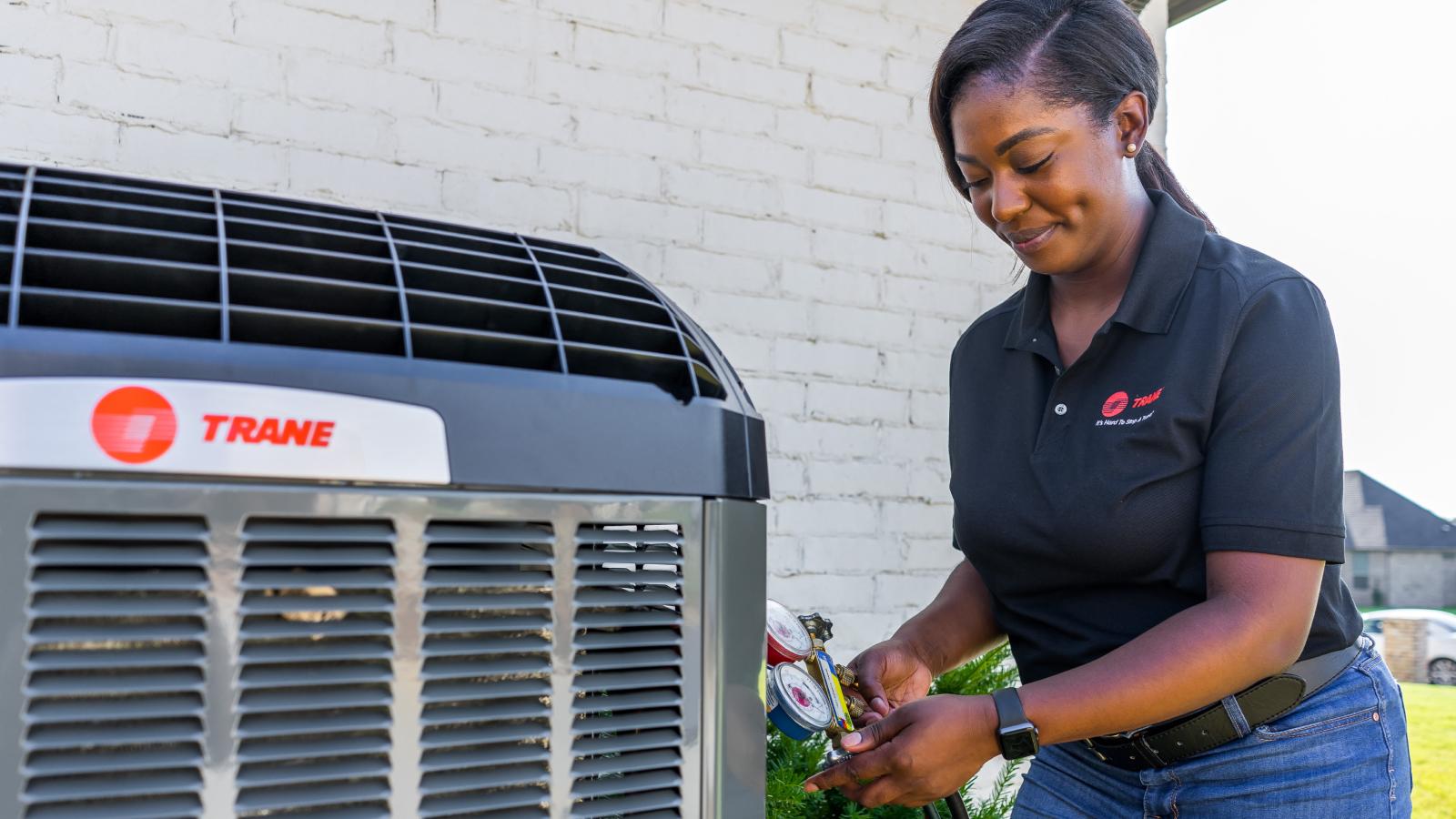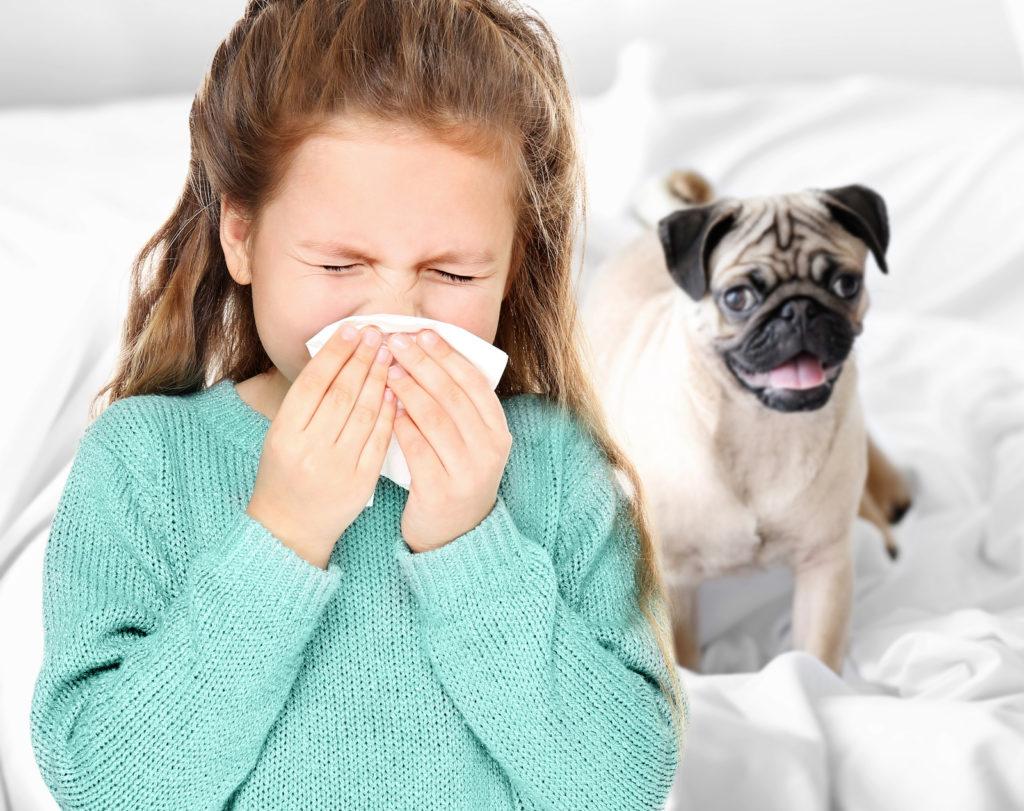What Are the Best Air Filters for Allergies?
When it comes to seasonal allergies, your HVAC system is your front-line defense to keeping allergens out of your home. Discover which type of air filter will best defend your home against seasonal allergies.
Spring is here, and as new blooms turn our worlds brighter, the pollen produced by them can bring us itchy eyes, runny noses, and all-around discomfort. If you find yourself sniffling and sneezing your way through allergy season, adding the right air filter to your HVAC system can help improve your home’s air quality and ease your allergy symptoms. However, knowing which filter will best reduce allergens in your home is crucial to finding relief. Here’s what you need to know before you go shopping.
Types of HVAC Air Filters to Reduce Allergies
When it comes to particles that cause allergies in your home, not all filters are created equal. Choosing the right filter largely depends on what you need to purify from the air to be comfortable. Take a look at each type of filter and its characteristics to decide what may be the best fit for your home, and then contact an HVAC professional who can help you make a final decision about your air filter.
Traditional Fiberglass or Spun Glass Filters
In these filters, strands of fiberglass are spun together. The most common type of air filter, and the most affordable, these filters are flat panels that have been around for years. They don’t look fancy, but they’re affordable, disposable, and won’t restrict airflow in your HVAC system as much as the others while still protecting air conditioners and furnaces from debris. However, they’re not great at trapping allergens. These filters will capture less than 10% of the pollutants in your home and are not recommended for people who have respiratory problems.
Pleated Fiberglass Filter
Pleated filters are composed of polyester fibers and cotton folds. Typical residential pleated filters have a lot more surface area and can filter 20-50% of allergens in the home depending on rating. You can also find electrostatic filters made with electrically charged materials that are great at attracting particles. The downside is they are more expensive and can restrict airflow in your HVAC system more so than traditional fiberglass filters. This means your system will have to work harder, and it’ll be hard to save money on energy costs during allergy season. But test one out and see if the thicker filter changes the way your heating and cooling system works.
High-Efficiency Particulate Air (HEPA) filters
These filters can remove up to 98% of pollutants in the air, but they’re also so thick that they require an extra fan to push air through the filter. That’s why HEPA filters have to be incorporated into a whole-house filtration system. And while these filters have the highest cost among disposable filters, they also have one of the biggest impacts on improving allergy symptoms.
Electronic Air Filters
Electronic air filters are air filters that use electrostatic attraction to capture airborne particles. As air passes through the filter, the electrostatic field attracts and captures the airborne particles, holding them in place until the filter is cleaned or replaced. Unlike traditional air filters that rely on mechanical filtration to capture particles, electronic filters can capture very small particles, including bacteria and viruses, without significantly reducing the airflow. This technology is part of what makes products like the Trane CleanEffects® Whole Home Air Cleaner significantly more effective than standard air filters in removing contaminants from the air, as it can remove 99.98 percent of airborne pollutants including viruses.
Electronic air filters are often reusable and can be cleaned by washing with soap and water. They are also more environmentally friendly than disposable filters since they can be used for several years before needing to be replaced.
Comparing CADR for Common Filter Types
Before you make your final decision, compare the Clean Air Delivery Rate (CADR) of common filter types. You may pay a little more for a higher CADR, but your sinuses will thank you.

What Size Air Filter Do I Need to Reduce Allergens?
There is no best size for your air filter other than the correct size. When it comes to reducing allergens in your home, bigger does not mean better. HVAC filters are determined by the filter’s depth, height, and length. There are standard sizes, but they differ depending on each HVAC system and its requirements.
The best way to determine the right size for your filter is to remove the existing filter from the HVAC system and check the frame for its dimensions. Dimensions should also be listed in your HVAC system’s user manual. Generally, filters have a thickness of 1 inch for smaller systems and 5 inches for larger systems. Height and length combinations vary from 10x10 to 30x30.
Some of the most common sizes are:
- 14 inches by 25 inches
- 16 inches by 20 inches
- 16 inches by 25 inches
- 20 inches by 25 inches
- 25 inches by 25 inches
No filter is universal, so it’s important to make sure the filter you purchase is the correct size to fit in your HVAC system to keep your system running smoothly.
Tips for Reducing Allergies
Finally, keep in mind that an air filter is just one part of your allergy battle plan. You’ll have a better chance of wiping out allergies if you use multiple tactics. Try adding some of these simple tips to your routine.
- Keep pets off of furniture and out of bedrooms. If your pets are outside often, allergens will stick to their fur, and they’ll bring those particles indoors with them.
- Shower before you go to bed to remove any allergens that are on your hair and skin.
- Wash clothing and linens with super hot water to banish dust mites.
- Vacuum, vacuum, vacuum. A fast way to reduce sniffle-inducing dust and allergens is to vacuum once a day.
- Change or clean your air filter once a month.
- Keep your windows closed and limit your time outdoors to reduce exposure to pollen and outdoor allergens.
- Consider a whole-house filtration system for a more robust approach to stopping allergy attacks.
Reduce Allergies by Calling Your Local Trane Expert
Every allergy sufferer and HVAC system is unique, so asking an expert is your best bet for quick relief. Instead of trying different filters and seeing what works, an expert can help you determine the right filter to maximize energy efficiency and your health.
If you want one-on-one advice about the best filter for your home or you’re curious about whole-house filtration, your local Trane Comfort Specialist™ can walk you through a variety of options to help handle your allergies. Contact us today!




